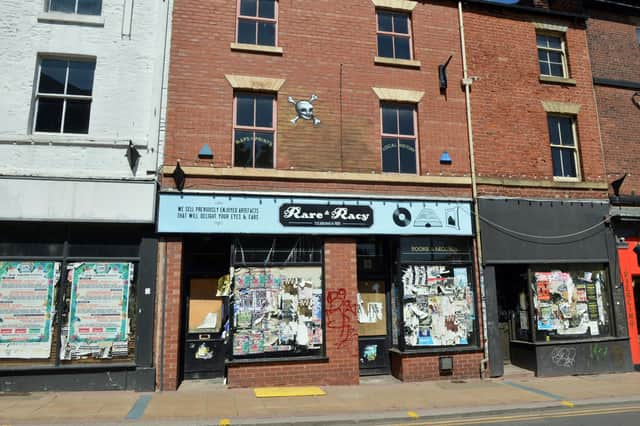Letter: Not-so-rare decision


The planning committee’s refusal of the demolition of the Georgian building on Devonshire Street, former home to the much-loved Rare and Racy, and which may be Sheffield’s oldest purpose-built shops, is another nail in the coffin of the fallacy that the new and modern is automatically good anywhere.
The committee reinforced what is repeatedly stated in local and national planning policy: that well-designed developments respect local character and identity.
Advertisement
Hide AdAdvertisement
Hide AdMembers thought the replacement decent enough in isolation, but utterly out of place in Devonshire Street.
They voted down their officers’ recommendation to approve, and were adamant that their stated reasons include the harm to the setting of the nearby listed Wharncliffe Fireclay Works.
Members have shown the same good sense on several occasions recently. They recognise that Sheffield’s historic buildings and streets have great potential, and that given the proven economic, social, health and well-being benefits of a high-quality historic environment, we should make the best use of the places that are valued by local people, and keep the city distinctive.
Another fallacy to be nailed is that new buildings are better for the environment.
Advertisement
Hide AdAdvertisement
Hide AdA new report from the European Academies Science Advisory Council, whose members include the UK’s Royal Academy, highlights the carbon cost of demolition and rebuild. It calls for policy-makers to discourage or even prohibit demolition and rebuild in favour of renovation. They are the latest of many.
The RetroFirst campaign of the Architects’ Journal points out that the UK construction industry, though beneficial, produces 35-40 per cent of the country’s emissions. Sixty-three per cent of Britain’s 200m tonnes of waste is construction debris, according to DEFRA.
RICS has calculated that just building an office development accounts for 35 per cent of its carbon footprint – and for residential it is an eye-watering 51 per cent.
Only a year since, our own University of Sheffield rolled out their “Regenerate” tool to help developers make better choices to re-use materials and buildings.
Advertisement
Hide AdAdvertisement
Hide AdThe environmental cost wasn’t even discussed in committee. The report they received acknowledges that re-use of existing buildings is more sustainable than redevelopment, but repeats the claim that new buildings are more energy efficient.
This is increasingly discredited by findings about the energy cost of demolition, never mind that a mere 10 per cent of ongoing energy needs have to be from renewable or low-carbon sources.
We cannot afford to continue with such outdated ideas.
The Planning Committee are to be commended for their foresight in valuing the character that we have inherited from our past.
Their next step must be to recognise its value to the planet.
Comment Guidelines
National World encourages reader discussion on our stories. User feedback, insights and back-and-forth exchanges add a rich layer of context to reporting. Please review our Community Guidelines before commenting.